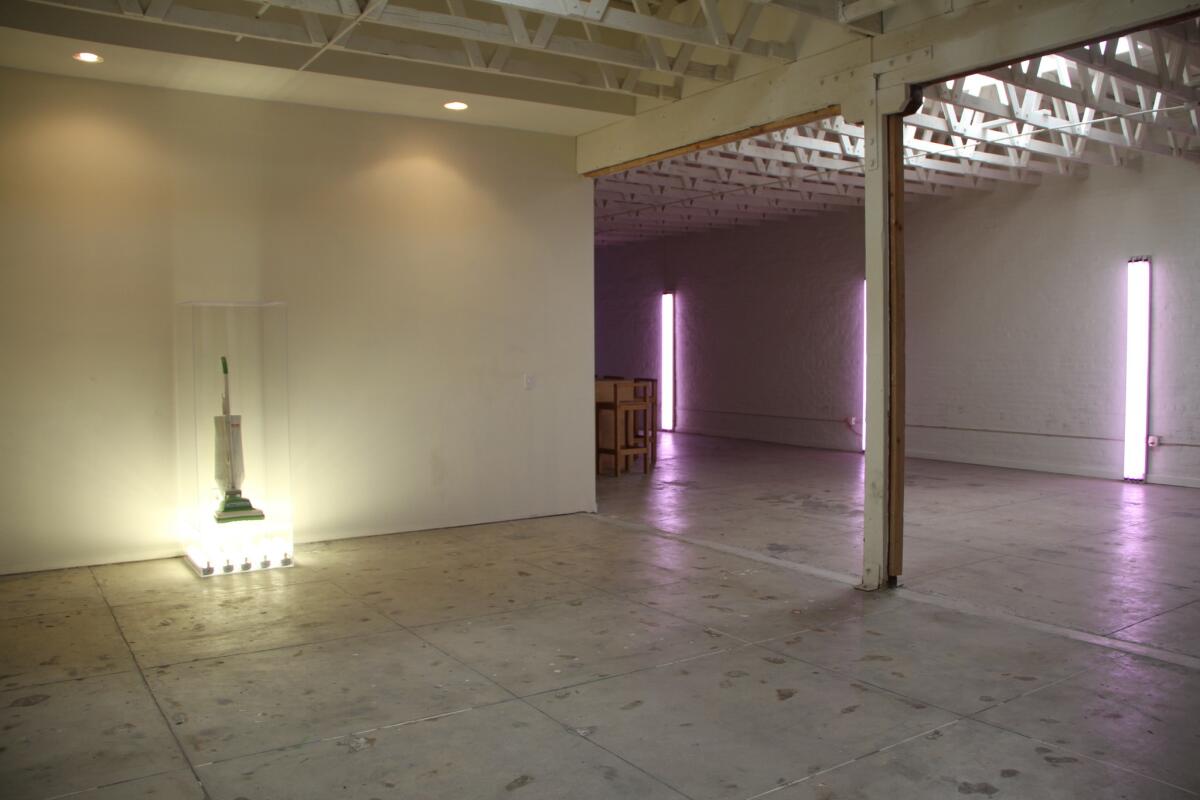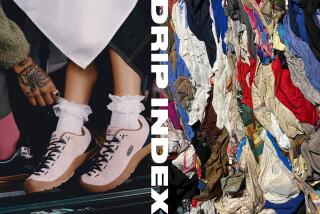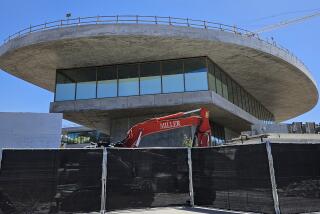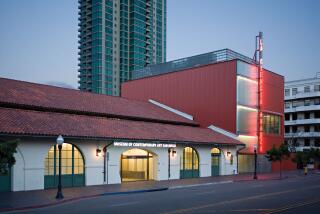L.A.’s Underground Museum to close its doors in Arlington Heights

The Arlington Heights-based Underground Museum has announced it is closing “until further notice.”
In an emotive Instagram posting, President Karon Davis — a sculptor who co-founded the alternative art space in 2012 with her late husband, painter Noah Davis, and his brother, video artist Kahlil Joseph — announced the news “with deep sadness.” The closing of a current exhibition of Noah Davis’ work, she said, would also be the end of Meg Onli and Cristina Pacheco’s tenures as co-directors of the art space.
Noah Davis — whose work is included in the collections of the Museum of Contemporary Art, the Los Angeles County Museum of Art and the Studio Museum in Harlem — died in 2015 from a rare form of cancer. He was 32. He and Karon Davis had been married seven years at the time and they had a 5-year-old son, Moses.
Steering the family-run art space after his death has been “an incredible journey,” Davis said in the announcement, but also a painful one.
“As soon as Noah passed, each of us immediately jumped into the work of running the museum to realize his vision,” she said. “As a result, we were not able to fully grieve his loss privately or take the time needed to heal. This was made all too clear when Noah’s paintings returned to the space for the first time since his passing.”
Since Davis’ death, the world has changed, the announcement added. “COVID, the movement for Black lives, and the growth of [Noah Davis’] legacy have impacted us all individually and as a family. These issues are affecting how each of us views the museum and our roles within it.”
Closing is a way to give Davis and others involved with the museum the space and privacy to heal as well as time to chart the future of the institution. When reached by phone, Davis didn’t wish to add anything beyond what’s in the announcement.
Onli has served as co-director and curator of the Underground Museum since October 2021. She joined Pacheco, who is chief operating officer. Megan Steinman was founding director until December 2020; Deana Haggag and Pacheco served as interim directors after that, until Onli came on board and she and Pacheco took the reins.
The Underground Museum has been a vital community space for artists, filmmakers, writers, musicians, activists and other creatives since it opened.
Key shows have included 2016’s “Non-fiction,” a group exhibition and MOCA collaboration exploring violence against Black people in the U.S. that Times art critic Christopher Knight called “an elegiac tone poem, spoken in visual shades of black;” 2018’s “Deana Lawson: Planes,” a solo show of the artist’s portraits of Black domestic life; and the 2017 group exhibition “Artists of Color,” posthumously curated by Noah Davis, who wrote out notes on organizing it before he died.
The recent solo show of Noah Davis’ work was organized by former MOCA chief curator Helen Molesworth and artist Justen Leroy, who works under the name SON. The primarily figurative work, which had shown at the David Zwirner gallery in both New York and London, is “a crucial part of the story of the rise of figurative and representational painting in the first two decades of the 21st century,” as the Underground Museum describes it.
“Ultimately, I want to change the way people view art, the way people buy art, the way they make art,” Noah Davis had said in a statement on the museum’s website. “I’ve always tried to balance the tight rope of making my art accessible to those who are aware of the craft, and those who aren’t convinced of art or more specifically my artistic objective. I believe that concealing too much in theory is problematic and that art can function in every day life. I strive for an artistic legacy that not only transcends blackness but confluences and impacts all cultures.”
More to Read
The biggest entertainment stories
Get our big stories about Hollywood, film, television, music, arts, culture and more right in your inbox as soon as they publish.
You may occasionally receive promotional content from the Los Angeles Times.











